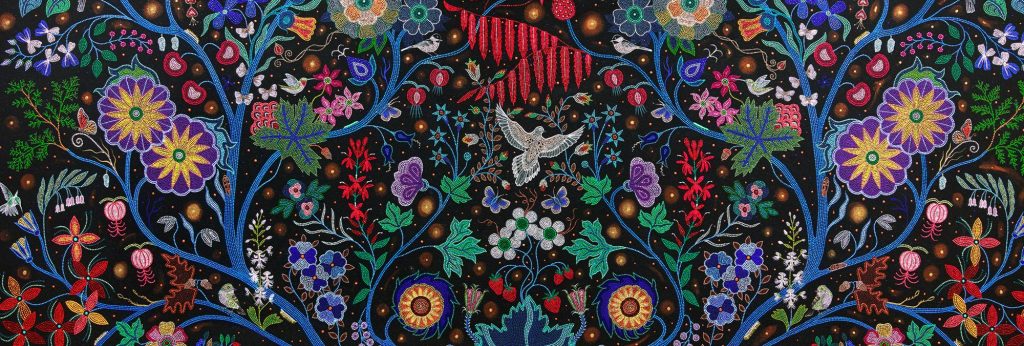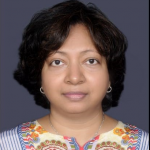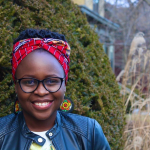8 December 2022, Ghent University
Invited speakers: Prof. Dr. Amanda Lucia (University of California-Riverside), Dr. Kavita Maya (Royal Holloway, University of London) and Dr. Cassandra Ellerbe (Bard College Berlin)

Scholarship on what is referred to as “contemporary women’s spirituality” mostly deals with new and alternative forms of spirituality in the West that emerged with the 1960s counterculture and, more recently, as part of the rise of subjective wellbeing culture. As such, it includes goddess spirituality, feminist Wicca, women’s circles and a broad range of offerings aimed at enhancing women’s wellbeing through using globalized spiritual resources such as yoga, tantra, Daoism or shamanism.
These forms of spirituality are a predominantly white phenomenon. Yet, they often rely on teachings and practices that originate from peoples of colour and that are eclectically mixed and interpreted in line with romanticized views of the primitive other. Therefore, they have been accused of cultural appropriation and of sustaining the colonial logics of white privilege and possessivism. Other critiques have targeted the religious exoticism which these spaces of spiritual seeking propagate by reproducing stereotypical ideas of the other in the service of white identity needs. A first aim of this symposium is to uncover these neo-colonial logics as they operate within contemporary women’s spirituality. This also includes the question of what decolonizing women’s spirituality might actually entail.
A consequence of the self-referential representation of the cultural other in contemporary women’s spirituality is the marginalisation of the actual voices of people of colour. They are a minority among the participants in these settings and even more rare as authorities sharing their own views and perspectives. Moreover, the notion of sisterhood is repeatedly used in a way that imagines a self-evident female solidarity but does not actually engage with the different challenges women face and does not question the category of “women” as such. Hence, it is in danger of downplaying the impact of diverse positionalities and of ignoring non-binary identifications. A second aim of this symposium is to center these voices and perspectives that remain sidelined and to reflect on the use of the decolonial concept of pluriversality to rethink ideas of equal participation and solidarity.
A third and last aim of the symposium is to investigate the link between contemporary women’s spirituality and feminist theory and practice. Goddess spirituality and feminist Wicca emerged in the context of second-wave feminism and have clear affinities with cultural and radical feminism. How has this evolved? Can certain forms of women’s spirituality today be situated within third-wave feminism? What about the link with postcolonial, black or queer feminisms? This also prompts a reconsideration of the dominant white- and Western-centred understanding of the category of “contemporary women’s spirituality” itself.
Venue: Campus Boekentoren, Building Blandijn, Faculty Room, Blandijnberg 2, 9000 Gent
If you wish to attend online, please register with carine.plancke@ugent.be
Organisation: Prof. Dr. Carine Plancke, Prof. Dr. Chia Longman and Carla Besora Barti
Centre for Research on Culture and Gender, Ghent University
Programme (CET Brussels time)
9u-9u15: Welcome and opening words by Prof. Dr. Carine Plancke (Ghent University)
Invited Lectures
9u15-10u05 : Prof. Dr. Amanda Lucia (University of California-Riverside): Denaturalizing White Women’s Agency in Alternative Spiritualities, Introduced by Prof. Dr. Carine Plancke
10u05-10u55: Dr. Kavita Maya (Royal Holloway, University of London): Women’s Spirituality and the Fabric of Colonial Modernity, Introduced by Carla Besora Barti
10u55-11u10: Coffee break
11u10-12u00: Dr. Cassandra Ellerbe (Bard College Berlin): Resistance and Conjuring Spirit in Berlin with Afrikan Yoga, Introduced by Prof. Dr. Chia Longman
12u00-12u30: Q&A
12u30-13u30: Lunch break
Panels
13u30-15u15: Panel 1: Decolonizing Women’s Spirituality: Deconstructing Whiteness, Chair: María Eugenia León-Olarte (Free University of Amsterdam)
Alex García Jouve (Complutense University of Madrid & University of Groningen): The Trap of Essentialism? Gender and Culture in Women-Centered Spiritualities In Spain
Dr. Lina Aschenbrenner (University of Erlangen-Nuremberg): Global Hawaiian Hula Dance and the Complex Matter of Neo-Colonial Women’s Spirituality
Dr. Roshni Babu (Indian Institute of Technology Bombay): Decolonizing Goddess Feminism: Folk Goddesses and Virtual Spolia
Kajal Nisha Patel (University of Leicester): White Womanhood, Hindutva and Spiritual Bypass: Museums and the Mass-Yoga Spectacle
Ella Poutiainen (University of Turku) & Dr. Agi Wittich (The Hebrew University of Jerusalem): A Yoga of Her Own: Gender, Race and Authenticity in Women’s Yoga and Spirituality
15u15-15u30: Coffee break
15u30-17u15: Panel 2: Decolonizing Women’s Spirituality: Diversity in Resistance, Chair: Eline Huygens (Ghent University)
Pilar M. d’Alò (Newcastle University): The Green Tide Political Spirituality: Colonial Legacies of Knowledge Production
Ruth Vida Amwe (Princeton Theological Seminary): When Women Speak the Church into Being!: Feminizing the Vitality of African Christianity in America
Jane McBride (University of Leuven): Turning Up the Volume: Listening to the Voices of Religious Missionary Women. An Oral History Project with the Belgian Missionary Sisters, The Zusters Van De Jacht (Sisters Of The Hunt)
Dr. Rashida Bibi (University of Manchester): ‘Smile it’s Sunnah’- British South Asian (BSA) Muslim Women’s Use of Spiritual and Religious Teachings to Counter Prejudice and Islamophobia in Everyday Spaces
Prof. Dr. Anna Markowska (University of Wroclaw), Our Moist Lady and Pink Magic
Invited lectures
Prof. Dr. Amanda Lucia (University of California-Riverside): Denaturalizing White Women’s Agency in Alternative Spiritualities
In this keynote, Amanda Lucia, author of White Utopias: The Religious Exoticism of Transnational Festivals (2020), engages with a broad view of history in efforts to understand why white women have predominated the alternative, and often countercultural, spiritualities that have developed in the West since the mid-nineteenth century. Lucia suggests that the promise of female agency unearthed by alternative spiritualities in the West exists because they are imagined to exist outside of, and in contradistinction to, patriarchal forms of Judeo-Christian religiosity. As evidence, this talk draws on examples from the Spiritualists of the nineteenth century, the female followers of the earliest global gurus, the hippie-feminists of the Age of Aquarius, and the spiritual yogis of today. These innovative religious fields cultivated and provided space for female religious authority, but were often based in gendered essentialisms of idealized female characteristics of suppleness, intuition, permeability, gentility, earthiness, and naturalism. Such qualities made women into clairvoyants, yogis, earth mothers, goddesses, shamans, and mystics, all of which they were presumed to “naturally” embody because of their inherent intuitive powers and spiritual proclivities. The undercurrent to this, however, was that such positioning actually reinforced the exclusion of women from the dominant power structures in Western religions, and devalued alternative spiritualities as the silly and unserious domains of women’s spiritual play and social entertainment. Lucia argues that this is a derogatory stereotype prevails event today, from the Spiritualists to the “New Age” and its various spiritual descendants. In this paper, Lucia demonstrates how alternative spiritualities exemplify age-old social hierarchies of gender and race. They are deeply committed to the empowerment of white women, but this alternative empowerment only emerges as the result of women’s exclusion by white men from dominant spheres of power, and it is defined by cultural and religious violence against non-whites by furthering their exoticization and erasure.
 Bio
Bio
Amanda Lucia is Professor of Religious Studies at the University of California-Riverside. Her research engages the circulation of global Hinduism, with designated attention to global guru movements. She is author of White Utopias: The Religious Exoticism of Transformational Festivals (2020), which analyzes the intersections of yoga, whiteness, and religious exoticism. Her previous publications include Reflections of Amma: Devotees in a Global Embrace (2014), and numerous articles. She is currently crafting a body of research on representations of gurus, with particular attention to media and law. She is also the Principal Investigator for the Religion & Sexual Abuse Project, www.religionandsexualabuseproject.org
Dr. Kavita Maya (Royal Holloway, University of London): Women’s Spirituality and the Fabric of Colonial Modernity
This talk will consider the various ways contemporary women’s spirituality reproduces colonial and orientalist discourses of race and gender, using the Goddess movement, which overlaps with the broader spectrum of contemporary women’s spirituality, as a primary example. It will also address the complex question of how and to what extent women’s spirituality can be decolonised, and what this actually might mean.
The epistemology and genealogy of ‘decolonising’ and ‘spirituality’ are of central importance to the problems and possibilities here, as I will discuss with reference to some of the scholarship on contemporary spirituality and the politics of decolonising. These political and epistemic considerations are at odds with contemporary spirituality’s tendency to deflect political conflicts and entanglements in pursuit of transcendental and personally transformative meaning-making practices, including within spiritual feminist spaces that are predominantly, but not always, white. The result is that contemporary spirituality often either reproduces colonial dynamics of appropriation and exoticisation, and/or encourages a return to idealised, pre-modern traditions that reverse and reinstate the binary logics of colonial modernity.
How, then, can scholars and practitioners of contemporary women’s spirituality find critical but creative ways forward? Rather than offering definitive answers, I emphasise the importance of placing decolonial, antiracist feminist ethics and politics at the centre of conversations about contemporary women’s spirituality. Most of all, I suggest, we need to situate personal experiences in a larger political tapestry, and become comfortable with unsettling popular trends in how spirituality is understood and practiced.
Bio:
 Dr Kavita Maya is a member of the Feminist Review Editorial Collective, and a Gender Research and Outreach Fellow in the Gender Institute at Royal Holloway, University of London.
Dr Kavita Maya is a member of the Feminist Review Editorial Collective, and a Gender Research and Outreach Fellow in the Gender Institute at Royal Holloway, University of London.
Her doctoral research developed a critical analysis of gender, racialisation and coloniality in the spiritual feminist Goddess movement, tracing its erasure of the modern-day subject positions of women of colour. Her current research is concerned with an antiracist and decolonial critique of feminist textual practices, and on entanglements of gender, race, coloniality and nationalism in contemporary women’s spirituality. Her work is published in Feminist Theology, Renewal: A Journal of Social Democracy, and on the Feminist Review blog.
Dr. Cassandra Ellerbe (Bard College Berlin): Resistance and Conjuring Spirit in Berlin with Afrikan Yoga
While the practice of Hatha Yoga can be viewed as a transformative spiritual practice, and a tool of empowerment; the omnipresence of white body supremacy and lack of diversity within Yoga spaces, has unfortunately distorted the image of this practice into one that has come to be viewed by some as exclusionary and elitist. Yoga spaces have in many instances become sites where oppression is reproduced. These are spheres where Black and bodies of colour do not experience rejuvenation and healing, but harm. This has prompted some individuals of the Black and (FLINTA) communities of colour in Germany to curate selfdetermined spaces and seek alternative spiritual practices.
In this discussion, I examine the practice of Afrikan Yoga within this community in Berlin. Moreover, I argue that the embrace of this practice is a decolonial form of resistance as well as a way of healing and conjuring spirit.
Bio:
 Cassandra Ellerbe completed in 2006 a PhD in Comparative Cultural Studies/Anthropology at the University of Ghent, Belgium. She has worked as a researcher in various cross-border EU funded projects. She is currently Officer for Diversity & Inclusivity in the EU & DAAD funded project titled YUFE (Young Universities for the Future of Europe) at the University of Bremen, Germany: https://www.uni-bremen.de/en/cooperation/university-cooperation-1/yufe.
Cassandra Ellerbe completed in 2006 a PhD in Comparative Cultural Studies/Anthropology at the University of Ghent, Belgium. She has worked as a researcher in various cross-border EU funded projects. She is currently Officer for Diversity & Inclusivity in the EU & DAAD funded project titled YUFE (Young Universities for the Future of Europe) at the University of Bremen, Germany: https://www.uni-bremen.de/en/cooperation/university-cooperation-1/yufe.
Cassandra is a certified diversity/social justice /Embodied Social Justice and empowerment workshop facilitator for People of Color in Germany. She was an academic Fellow at the Bayreuth Academy of Advanced African Studies (2013-2014) and network member of the Black Diaspora in Germany Scholars Project funded by the German Research Foundation (2010-2014).
Cassandra also lectures at Bard College Berlin and works on issues related to social justice and diversity: http://www.berlin.bard.edu/ . In addition, she is an avid practitioner of Afrikan Yoga and leads a healing circle exclusively for BIPoC (FLINTA) in Berlin
Panel presentations
Panel 1: Decolonizing Women’s Spirituality: Deconstructing Whiteness
Alex García Jouve (Complutense University of Madrid & University of Groningen): The Trap of Essentialism? Gender and Culture in Women-Centered Spiritualities In Spain
 As it happened half a century ago, the debates around ‘gender essentialism’ seems to be back at the frontstage, both inside and outside academia. The religious field is no stranger to that controversy, where discussions about what it means to be “a man” or “a woman” are followed by arguments regarding “non-binary gender and sexual identities” (Lepage 2020). Nowhere could this be more crucial than in the case of the so called ‘women-centered spiritualities’. In parallel to that, the raising concern about ‘cultural appropriation’ leads some of their -predominantly- white practitioners to consciously try not to “borrow” any element belonging to a different culture understood to be subordinate to their own. Ironically, however well-intentioned this approach may be, the fear of “eating the other” (hooks 1992) can in some cases lead to notions of culture as “biologically inherited” -making it isolated and virtually indistinguishable from race or ethnicity- (Magliocco 2021) contributing to a dichotomous view of the “Self” against the “Other”. Based on the testimonies drawn from my ongoing fieldwork experience on some of the women-centered spiritualities present in the Spanish context, in this communication I will inquire into how these broader social debates challenge or perpetuate alleged reductionist notions about gender and culture. All this while being aware that “the essentialist-anti-essentialist debate(s) can no longer (if it ever could) be constructed in straight forward binary terms” (Rountree 1999).
As it happened half a century ago, the debates around ‘gender essentialism’ seems to be back at the frontstage, both inside and outside academia. The religious field is no stranger to that controversy, where discussions about what it means to be “a man” or “a woman” are followed by arguments regarding “non-binary gender and sexual identities” (Lepage 2020). Nowhere could this be more crucial than in the case of the so called ‘women-centered spiritualities’. In parallel to that, the raising concern about ‘cultural appropriation’ leads some of their -predominantly- white practitioners to consciously try not to “borrow” any element belonging to a different culture understood to be subordinate to their own. Ironically, however well-intentioned this approach may be, the fear of “eating the other” (hooks 1992) can in some cases lead to notions of culture as “biologically inherited” -making it isolated and virtually indistinguishable from race or ethnicity- (Magliocco 2021) contributing to a dichotomous view of the “Self” against the “Other”. Based on the testimonies drawn from my ongoing fieldwork experience on some of the women-centered spiritualities present in the Spanish context, in this communication I will inquire into how these broader social debates challenge or perpetuate alleged reductionist notions about gender and culture. All this while being aware that “the essentialist-anti-essentialist debate(s) can no longer (if it ever could) be constructed in straight forward binary terms” (Rountree 1999).
Lina Aschenbrenner (University of Erlangen-Nuremberg): Global Hawaiian Hula Dance and the Complex Matter of Neo-Colonial Women’s Spirituality
 “Native Hawaiianess” has long been appropriated by non-Native Hawaiians, specifically in the realm of New Age and esoteric practices, such as Huna or Hoʻoponopono. After the interest in these practices ceded during the last decades, they are now on the rise in the realm of female dominated neo-spiritualities. Circumstances and context make it easy to classify these practices as neo-colonial; those who offer these practices face the critic of indigenous voices for decolonization on social media. However, there is also a more complicated matter. In the Second Hawaiian Renaissance in the 1960s and 1970s, claims for independence and the search for self-identification of Native Hawaiians intersected with a renewed global interest in Hawaiian culture. In this environment, Native Hawaiians started to teach Native Hawaiian cultural practices to non-Native Hawaiians, placing specific importance on holding true to Native Hawaiian tradition as they learned and perceived it. Such a practice is Hawaiian hula dance, which has since been practiced by a global community of women. The non-Native Hawaiian women follow the rituals, rules, and movements given by their Native Hawaiian teachers in precision, they invest time and knowledge to learn Hawaiian, they are aware of and educate themselves and others on the colonization of Hawaii and its existing social and cultural consequences. Still, their practicing hula serves neo-spiritual aesthetics connected to extraordinary experience, well-being, and answers their search for a worldview. The paper takes a close look at German hula group directly related to a Native Hawaiian hula teacher to exemplify the complex postcolonial power dynamics at work in this specific setting—especially non-verbally and implicitly. It asks, Can the practice of hula be anything other than neo-colonial? And most importantly, What are the implications for Native Hawaiians involved?
“Native Hawaiianess” has long been appropriated by non-Native Hawaiians, specifically in the realm of New Age and esoteric practices, such as Huna or Hoʻoponopono. After the interest in these practices ceded during the last decades, they are now on the rise in the realm of female dominated neo-spiritualities. Circumstances and context make it easy to classify these practices as neo-colonial; those who offer these practices face the critic of indigenous voices for decolonization on social media. However, there is also a more complicated matter. In the Second Hawaiian Renaissance in the 1960s and 1970s, claims for independence and the search for self-identification of Native Hawaiians intersected with a renewed global interest in Hawaiian culture. In this environment, Native Hawaiians started to teach Native Hawaiian cultural practices to non-Native Hawaiians, placing specific importance on holding true to Native Hawaiian tradition as they learned and perceived it. Such a practice is Hawaiian hula dance, which has since been practiced by a global community of women. The non-Native Hawaiian women follow the rituals, rules, and movements given by their Native Hawaiian teachers in precision, they invest time and knowledge to learn Hawaiian, they are aware of and educate themselves and others on the colonization of Hawaii and its existing social and cultural consequences. Still, their practicing hula serves neo-spiritual aesthetics connected to extraordinary experience, well-being, and answers their search for a worldview. The paper takes a close look at German hula group directly related to a Native Hawaiian hula teacher to exemplify the complex postcolonial power dynamics at work in this specific setting—especially non-verbally and implicitly. It asks, Can the practice of hula be anything other than neo-colonial? And most importantly, What are the implications for Native Hawaiians involved?
Dr. Roshni Babu (Indian Institute of Technology Bombay): Decolonizing Goddess Feminism: Folk Goddesses and Virtual Spolia
 The paper focuses on what decolonizing women’s spirituality might entail in the field of virtual heritage studies. The virtual space lies in the interstice between privileged appropriations of marginalized traditions in respective cultures, and the exoticised imagination of the self-referential cultural other. If the virtual heritage is about altering our hierarchical/colonial/sectarian present that would inform new spiritualties in an anti-capitalist, anti-racist, feminist perspective, how do we envision it? The challenge is to imagine this virtual mapping of heritage as a political event. This paper looks at this imaginary through the lens of folk goddesses who occupy a space of micro-inhabitations of minor traditions. What links these minor religiosities on the ground, and how it transpires on the virtual space is the attention of this paper.
The paper focuses on what decolonizing women’s spirituality might entail in the field of virtual heritage studies. The virtual space lies in the interstice between privileged appropriations of marginalized traditions in respective cultures, and the exoticised imagination of the self-referential cultural other. If the virtual heritage is about altering our hierarchical/colonial/sectarian present that would inform new spiritualties in an anti-capitalist, anti-racist, feminist perspective, how do we envision it? The challenge is to imagine this virtual mapping of heritage as a political event. This paper looks at this imaginary through the lens of folk goddesses who occupy a space of micro-inhabitations of minor traditions. What links these minor religiosities on the ground, and how it transpires on the virtual space is the attention of this paper.
In the field of feminism, it is the goddess movement which mobilized reflexivity on minor goddess figures who may be called as folk-goddesses. Pertinent question is whether the goddess figures by themselves by default become feminist figures? Denaturalizing the self-evidence of goddess feminism would imply re-invention of indigenous spiritualties, to see how they are at odds with generalizations. Goddess feminism is a multi-layered discourse crisscrossing the East-West binary. It is with respect to these figures in India, their visibility and invisibility, in consequence of their appropriations into the Vedic and anti/non-Vedic pantheons and modes of worship that this paper makes an intervention.
In particular, the focus is upon those myths associated with menstrual purity. Though purity-impurity debate in relation to goddess cults is a well-trodden terrain, it has several subtexts that overlap each other when it comes to the lesser known folk goddesses. Elucidating these elusive subtexts concerning a particular cluster of folk-goddess figures of southern India is the anchoring point of this paper. How is their elusive constitution and multivalence transposed as “virtual spolia”?
Kajal Nisha Patel (University of Leicester): White Womanhood, Hindutva and Spiritual Bypass: Museums and the Mass-Yoga Spectacle
 Postural Yoga has grown to become an acceptable feature of museum and gallery programmes in North America and Western Europe today. I seek to critically examine the state of modern popular yoga as it is being delivered within the public programs of museums.
Postural Yoga has grown to become an acceptable feature of museum and gallery programmes in North America and Western Europe today. I seek to critically examine the state of modern popular yoga as it is being delivered within the public programs of museums.
Cultural policies which resulted from New Labour (1997-2010) have required British museums to be socially inclusive, relevant, responsible, engaged and purposeful. Under this directive, a socially responsible museum was measured in terms of its intrinsic value; alongside its ability to attract and include more diverse and socially excluded groups. Research and data has subsequently emerged to evidence the positive effects that museums can have upon wellbeing; and this is a welcome addition to ongoing discourse around the value of art and culture. Museum agenda strategies have therefore been repositioned towards entertainment; and under this logic, many now offer a wide range of products to attract new audiences via leisure and tourism. As part of this offering, it has become normalised to find museums competing within the spiritual marketplace.
I question the purpose of museum-yoga and to what extent this is a reactive response to neoliberal, capitalist and populist ideologies. I expand my inquiry towards International Yoga Day, established by Indian Prime Minister Narendra Modi. I explain that through its support of the mass-yoga spectacle, museums and their largely white female participants are complicit in the export of Hindu fundamentalism (Hindutva).
My case studies are focused on local museums/galleries in Leicester.
Ella Poutiainen (University of Turku) & Dr. Agi Wittich (The Hebrew University of Jerusalem): A Yoga of Her Own: Gender, Race and Authenticity in Women’s Yoga and Spirituality
 By looking at women-oriented yoga and spirituality, this paper will consider the complex and entangled ways in which gendered and racial power dynamics are at work in contemporary adaptations of yoga, and how these inform the politics of voice and representation.
By looking at women-oriented yoga and spirituality, this paper will consider the complex and entangled ways in which gendered and racial power dynamics are at work in contemporary adaptations of yoga, and how these inform the politics of voice and representation.
The fact that white Western women dominate the yoga scene today leads us to ask whether the practice of women-oriented yoga and spirituality are forms of white feminism. Amanda Lucia (2020) has suggested that the apparent whiteness of contemporary yoga gives rise to anxieties over its authenticity, and hence its authority. These anxieties are settled through legitimation through tradition and Indian roots, as is done in lineage-based forms of yoga, or through personal experience, as is the case in more innovative “post-lineage” forms of yoga. We argue that these strategies of legitimation are also at play in contemporary women’s yoga and spirituality, where women-oriented Iyengar Yoga can be seen as a case of the  former, and feminine spiritualities as an example of the latter. However, claims of authenticity and strategies of legitimation take on additional connotations and layers of meaning informed by gendered power relations, which serves to blur the boundaries between lineage-based and post-lineage mentalities.
former, and feminine spiritualities as an example of the latter. However, claims of authenticity and strategies of legitimation take on additional connotations and layers of meaning informed by gendered power relations, which serves to blur the boundaries between lineage-based and post-lineage mentalities.
Because yoga as a tradition is understood to be patriarchal and exclusive of women’s presence, innovation becomes a necessity, and thus both cases break with tradition in the name of women’s emancipation. Still, in accentuating women’s experience, both idealize a specific form of womanhood, which then reinforces gender norms. Furthermore, while both cases show sympathy for non-white women, the control over representation stays mainly in white hands, which in turn reduces inclusivity and reinforces white privilege.
Panel 2: Decolonizing Women’s Spirituality: Diversity in Resistance
Pilar M. d’Alò (Newcastle University): The Green Tide Political Spirituality: Colonial Legacies of Knowledge Production
 In the Argentinian feminist grassroot movement Green Tide, elements of women’s spirituality have taken an important role in supporting and fostering feminist culture. According to Veronica Gago, prominent Green Tide scholar and activist, ‘spirituality’ and the figure of ‘the witch’ have become essential for the movement’s mystique and force of insurgence. As a specific agency and affect, ‘Spirituality’ is constructed as ‘(feminist) political’ and, specifically, as ‘feminism from the South’ paralleled to Indigenous and other racialised ontologies and struggles. ‘Spirituality’, these feminists argue, brings about an alternative civilization proposal that claims to challenge the country’s colonial legacies by fostering an anti-capitalist, anti-patriarchal way of living and knowing. The emergence of ‘spirituality’ and ‘the witch’ is aligned with the recent-past context of Argentina as a country in unrest due to abortion debates, neoliberal policy implementation, questioning of national narratives of Europeanness and whiteness, and the rising of Indigenous and Afro-descendant activism. Nonetheless, the claiming of ‘spirituality’ as a political ‘feminism from the South’ by Argentinian feminists must be situated within global dynamics of knowledge production that increasingly read ‘spirituality’ as inherently decolonial and associated to racial politics. This paper critically interrogates the epistemic conditions that allow the Green Tide’s ‘witch’ and ‘spirituality’ to be intelligible as a decolonial feminism from the South, locating this within a political economy of power/knowledge that is shaped by colonial histories and their enduring legacies. The naming of ‘spirituality’ as decolonial feminist from the South, while it positions itself within anti-colonial or Southern struggles, emerges as dependent on colonial processes of power/knowledge.
In the Argentinian feminist grassroot movement Green Tide, elements of women’s spirituality have taken an important role in supporting and fostering feminist culture. According to Veronica Gago, prominent Green Tide scholar and activist, ‘spirituality’ and the figure of ‘the witch’ have become essential for the movement’s mystique and force of insurgence. As a specific agency and affect, ‘Spirituality’ is constructed as ‘(feminist) political’ and, specifically, as ‘feminism from the South’ paralleled to Indigenous and other racialised ontologies and struggles. ‘Spirituality’, these feminists argue, brings about an alternative civilization proposal that claims to challenge the country’s colonial legacies by fostering an anti-capitalist, anti-patriarchal way of living and knowing. The emergence of ‘spirituality’ and ‘the witch’ is aligned with the recent-past context of Argentina as a country in unrest due to abortion debates, neoliberal policy implementation, questioning of national narratives of Europeanness and whiteness, and the rising of Indigenous and Afro-descendant activism. Nonetheless, the claiming of ‘spirituality’ as a political ‘feminism from the South’ by Argentinian feminists must be situated within global dynamics of knowledge production that increasingly read ‘spirituality’ as inherently decolonial and associated to racial politics. This paper critically interrogates the epistemic conditions that allow the Green Tide’s ‘witch’ and ‘spirituality’ to be intelligible as a decolonial feminism from the South, locating this within a political economy of power/knowledge that is shaped by colonial histories and their enduring legacies. The naming of ‘spirituality’ as decolonial feminist from the South, while it positions itself within anti-colonial or Southern struggles, emerges as dependent on colonial processes of power/knowledge.
Ruth Vida Amwe (Princeton Theological Seminary): When Women Speak the Church into Being!: Feminizing the Vitality of African Christianity in America
 In January of 1991, Bernice Boakye welcomed her three friends: Adelaide Agyemang, Elizabeth Andoh and Grace Ocansey, into her home. As one of many such informal gatherings which typically touched on a variety of subjects, a distinct chord was struck on that day. The women talked about their cultural and religious experiences as Ghanaian immigrant women in America and concluded on the need for a congregation that would serve the growing number of Ghanaian Presbyterians living in the neighborhoods of Brooklyn, New York. This idea would receive overwhelming support leading to the birth of Bethel Presbyterian Reformed Church (BPRC). Today, BPRC serves a formative function not just in the lives of its congregants or the immediate neighborhoods of Brooklyn but also within the umbrella organization of the Conference of Ghanaian Presbyterian Churches in North America (CGPCNA). Simultaneously, BPRC and its women’s fellowship group constitute a significant nexus in the association of Ghanaian Presbyterian National Women’s Fellowship of North America.
In January of 1991, Bernice Boakye welcomed her three friends: Adelaide Agyemang, Elizabeth Andoh and Grace Ocansey, into her home. As one of many such informal gatherings which typically touched on a variety of subjects, a distinct chord was struck on that day. The women talked about their cultural and religious experiences as Ghanaian immigrant women in America and concluded on the need for a congregation that would serve the growing number of Ghanaian Presbyterians living in the neighborhoods of Brooklyn, New York. This idea would receive overwhelming support leading to the birth of Bethel Presbyterian Reformed Church (BPRC). Today, BPRC serves a formative function not just in the lives of its congregants or the immediate neighborhoods of Brooklyn but also within the umbrella organization of the Conference of Ghanaian Presbyterian Churches in North America (CGPCNA). Simultaneously, BPRC and its women’s fellowship group constitute a significant nexus in the association of Ghanaian Presbyterian National Women’s Fellowship of North America.
Against this backdrop, this paper seeks to center the perspectives of women in World/Global Christianity by examining the lived religious and cultural experiences of African Christian women in transnational spaces. It is no longer news that the demographic center of Christianity has shifted from the Global North (GN) to the Global South (GS) such that the burgeoning trends of migration from Africa to the GN vis a vis the translocation of Christian religious spaces is engineering scholarly interest. The religious experiences and significance of African women, however, remains understudied. This lacuna features prominently considering statistical suggestions that the contemporary demographic representation of a Christian is an African woman. This paper, therefore, attempts to understand the transnational shape of African Christian women’s religious experiences by unpacking the role of Ghanaian women like Bernice Boakye and her friends. It seeks to examine the role of African women in both the founding, sustenance, and function of African Christian religious institutions in America. By engaging a gender and feminist sensitive analytical approach to African diasporic religiosity, this paper will explore the influence of African women in inspiring transnational, transcontinental and transregional religious and cultural relationships. It will also propose relevant methodological nuances towards underscoring the unique contribution of African women in the transformation of religious spaces in diasporic and global contexts.
Jane McBride (University of Leuven): Turning Up The Volume: Listening to the Voices of Religious Missionary Women. An Oral History Project with the Belgian Missionary Sisters, The Zusters Van De Jacht (Sisters Of The Hunt)
 Named after the hunting ground on which their mother house is built, the Zusters van de Jacht is one of the oldest female Flemish missionary congregations. Founded in 1897 by Dame Marie-Louise de Meester, they have worked in many different countries. They began in India, spread to the Philippines, China and Taiwan, taking in controversially the former Belgian colony of Congo, and extending to the United States and South America. They are today mainly a retired community with no new Belgian postulants, but still welcoming vocations from local women in the countries where they served.
Named after the hunting ground on which their mother house is built, the Zusters van de Jacht is one of the oldest female Flemish missionary congregations. Founded in 1897 by Dame Marie-Louise de Meester, they have worked in many different countries. They began in India, spread to the Philippines, China and Taiwan, taking in controversially the former Belgian colony of Congo, and extending to the United States and South America. They are today mainly a retired community with no new Belgian postulants, but still welcoming vocations from local women in the countries where they served.
As nationals of the colonising country of Belgium and as members of an established Church, the Sisters had a certain power and authority in the mission field which they exercised in different ways. As foreign women and members of a religious congregation, they held roles of leadership and influence abroad which allowed them to be effective bringers of change and help, as well as active entrepreneurs. These roles transcended the gendered roles of submission they would have held as religious Sisters in the Roman Catholic Church back in Belgium. Whilst seeking to explore the spirituality and motivations of the Sisters I am also aware that the women they served have not been given a voice, and are represented only through the Sisters’ perceptions of them.
I consider, in the light of contemporary discussions on the extent of missionary complicity in colonialism, whether the Sisters contributed to or have reflected on their roles in the Belgian colonial project, given that missionaries have been referred to as the third member of the Holy Trinity of colonialism, alongside industry and the State. In addition I explore how the Sisters’ spirituality and views were influenced by the spirituality and views of the local women in the missions alongside whom they lived and worked for many years.
Dr. Rashida Bibi (University of Manchester): ‘Smile it’s Sunnah’- British South Asian (BSA) Muslim Women’s Use of Spiritual and Religious Teachings to Counter Prejudice and Islamophobia in Everyday Spaces
 Hegemonic discourses of Muslim as embodying concerns national security, immigration, terrorism and integration of the ethnic ‘Other’ draw on parallels between secular/sacred in public spaces in the UK and Europe. Muslim women’s spirituality and visible religiosity in the everyday presents a contradiction to what are widely considered the public/secular, private/religious duality of shared spaces. Whereas expressions of alternative forms of spirituality and religion have gained increased popularity across the West, Islamic forms of spiritual or religious expression have been met with suspicion, fears of Islamification of Europe and increased terror.
Hegemonic discourses of Muslim as embodying concerns national security, immigration, terrorism and integration of the ethnic ‘Other’ draw on parallels between secular/sacred in public spaces in the UK and Europe. Muslim women’s spirituality and visible religiosity in the everyday presents a contradiction to what are widely considered the public/secular, private/religious duality of shared spaces. Whereas expressions of alternative forms of spirituality and religion have gained increased popularity across the West, Islamic forms of spiritual or religious expression have been met with suspicion, fears of Islamification of Europe and increased terror.
This paper discusses the way in which Islamophobic discourses impact upon the racialised and gendered corporeality of Muslim women in public spaces. Visibly marked as the ‘ethnic Other’ Muslim women’s bodies are seen as the sites through which bordering practices of exclusion are enacted. As such, Muslim women are required to navigate everyday spaces through an awareness of the self as ‘Other’. Drawing on theories of embodied intersectionality and double consciousness, this paper explores ways in which Muslim women employ understandings of religious and spiritual teachings to offset the duality of Muslim women as victim/threat. Based on research conducted with ethnic minority women in Oldham, UK, this paper illustrates Muslim women’s strategies in navigating social encounters in banal, everyday spaces and challenging stigmatisation of Muslim bodies through resisting a seemingly suspicious identity, embracing acceptable normality and displaying a ‘presentable self’.
Prof. Dr. Anna Markowska (University of Wroclaw), Our Moist Lady and Pink Magic
 The post-communist transition in Poland after 1989 (which can be perceived also as post-colonial because the ongoing Russo-Ukrainian war provided new arguments to the debate on the colonial character of the USSR and Russia) was accompanied by political tension around women’s rights. Recent anti-choice amendments to the Panel Code have been followed by many responses from female artists, who, in addition to expressing protest, are also seeking new models of empowering and reassuring spirituality.
The post-communist transition in Poland after 1989 (which can be perceived also as post-colonial because the ongoing Russo-Ukrainian war provided new arguments to the debate on the colonial character of the USSR and Russia) was accompanied by political tension around women’s rights. Recent anti-choice amendments to the Panel Code have been followed by many responses from female artists, who, in addition to expressing protest, are also seeking new models of empowering and reassuring spirituality.
The procession of Our Moist Lady, a sculpture that finally was erected at the Dramatyczny theatre in Warsaw on the occasion of Monika Strzępka’s ‘s appointment as the institution’s director, met recently with great media hype. The Moist Lady, conceived as a cult sculpture, is an image of a golden vagina one meter high. It was created by Iwona Demko as a manifesto of affirmation of the female body and the pleasure it brings. The assumption of the directorship of the theatre by a woman became an occasion, on the one hand, for a quasi-religious “Sabbath of a good beginning” procession, and on the other – a pretext to charge Demko with offending religious feelings.
No doubt, it was Alicja Zebrowska who was a precursor of the post-communist appropriation of the vagina image for female spirituality. She combined spirituality with a disagreement over the control of female sexuality. In her film The Mystery is Looking (1995), she endowed the vagina with an eyeball, making a new version of the eye of providence. Almost two decades later the feminist appropriation of Poland’s dominant Catholic spirituality was carried out by Aleka Polis with her video “Fructosa ejaculata” (2012), showing the communion of two women ingesting pink liquid flowing out of an artificial pink vagina. Pink magic, a term coined by Zofia Krawiec, means socially engaged magic, because this is what magical female spirituality, cutting itself both off both patriarchal Catholic religiosity and Marxist-Leninist atheism is all about.


